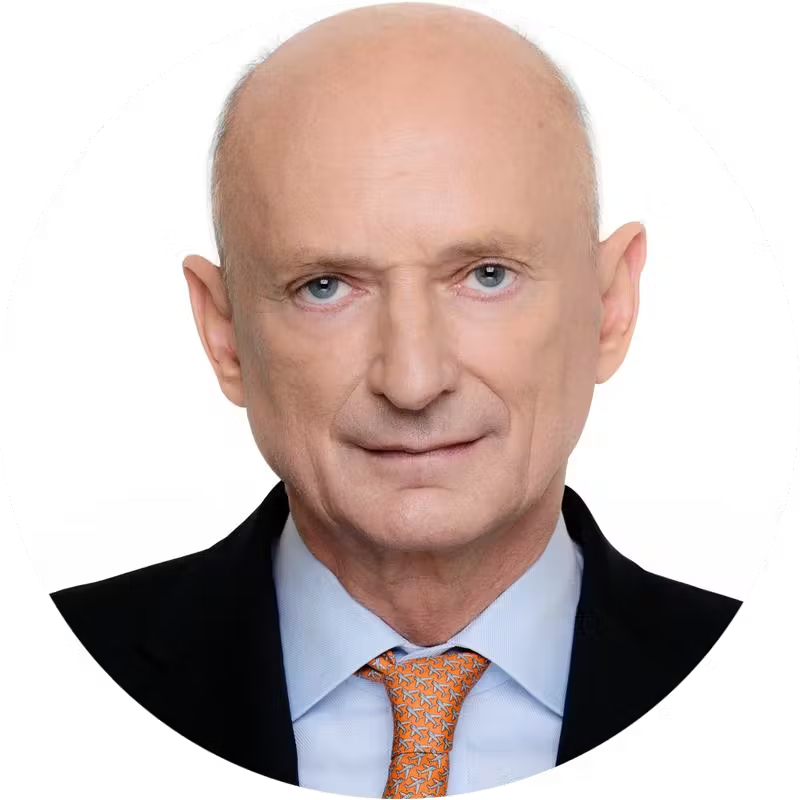HSH Prince Michael of Liechtenstein is the Founder and Chairman of Geopolitical Intelligence Services, Chairman of Industrie- und Finanzkontor in Vaduz (Liechtenstein), President of the think tank – the European Centre of Austrian Economics Foundation and one of the Founders of the International Institute of the Longevity.
Prince Michael is an important player in the area of geopolitics especially at the intersection where politics meets business, finance and the social context. In this short interview we discuss the geopolitical importance of the longevity sector.
Why are you interested in the subject of longevity and healthy aging?
Prince Michael: First, I’m interested simply for personal reasons. I care about all the people I love and I like, and to our friends and family, acquaintances and myself included, having a lengthy life span and healthy life during this life span. But there are also humanitarian reasons. The whole of society should be able to grasp opportunities to live healthy and longer in a satisfying and as happy as possible way. There are also societal reasons, we need to include aging people and retired people in society. And this is much easier if they stay active and healthy, and they live longer.
Thank you, and what are the key issues of the sector today?
Prince Michael: I think one of the key issues or aspects is prevention. This is a lifelong program in order to avoid age-related diseases, which can be Alzheimer’s disease, diabetes, coronary problems, but also other health problems, not only the age-related ones. Starting prevention early helps to achieve a healthy lifestyle extension. For that, we need to know a lot and age science provides programs, tools and advice to the willing to achieve this goal. Additionally, we need to see the issue of the longevity economy. In the near future, the financing for treating age-related diseases will become unaffordable. The social network and healthcare are in danger of collapse. We have the same problem with retirement payments and uncovered entitlements, sovereign debts, low interest rates, inflation etc.
This leads me to the next question, what is the geopolitical importance of this sector?
Prince Michael: What do we see as geopolitics? Geopolitics takes the knowledge of geography, history, economy, demography, ethnicity and culture to explore their influence on politics and economics, and the interdependence between local, regional and global facts. Important drivers in longevity are the economy and demography. We have to look closely at this situation. We have an aging population. The world population will soon start to stagnate and not to grow anymore and the share of aging people will become higher. This has a lot of positive effects, but also some problems and maybe I can start with the problems. First, there are healthcare costs. This will become as I said before, nearly unaffordable. Therefore, we have to see that people stay healthier. The next thing is retirement costs. We will have a problem to pay for that because people are getting older. So we have to look at how people can stay more efficient at work, but also how we can use older people who have a lot of experience. What comes with an aging society is that it is an opportunity as long as people stay healthy and active.

Starting prevention early helps to achieve a healthy lifestyle extension.
In your opinion, how can we better integrate the aging population into the society?
Prince Michael: I think it is simply by keeping aging people active so that they can continue to contribute. It might not be in the same job. Sometimes, when people get to 65, they would like to do something new. And this is fine. But if they are active, we don’t need to put them, let’s say in old people homes, etc. and stick them a bit away from society. They can stay really integrated within society and add a lot. They can be active in social or community work, with various associations, but they can also start a new job and even a new company.
Are there any regional differences which require differentiated approaches?
Prince Michael: Yes, there are a lot of regional differences. Certainly, there are cultural differences. And there is also the importance of larger families in certain cultures. I think this is a very positive thing to have the larger families included. And the healthier people are, the easier it is. In these cultures, which see the larger family importance, there’s also another issue, they see the next generation, as a pension fund, which is also quite a natural thing. In our societies in the West, we have the generation contract, there’s also the next generation as a pension fund. But this pension fund is declining. So it’s not going to work anymore. We have also in certain countries people taking a much stronger responsibility for their future and age and both, a financial and health responsibility, which are related. Now, the problem is that in our welfare state, and this concerns the Western cultures, we have given so much responsibility to the government, that many people say:
“Oh, it’s not my responsibility, health, and also my old age payment and my house cost and everything, this is now the problem of the government. It’s the problem of local authorities, but not my own responsibility anymore.”
This is very dangerous. We still need social systems. Absolutely. But these centralized “one-size-fits-all” systems don’t work. It needs more self-responsibility, but also more decentralized, regional or personalized social systems.
Prince Michael, how is the perception about the importance of health preservation or health prevention changing in the world?
Prince Michael: I think it is changing, but there are still quite large differences. There are studies, e.g. from the Insurance Group Aegon, which shows there are big differences in perceptions about the importance of health prevention in different regions. And one can see that in countries with a high welfare system, the perception of the importance of health prevention is lower than in countries where there is lower state welfare. This is not satisfactory and I think we have to do a lot to overcome this with everybody, including the medical profession, to see that it’s more important to start with health prevention, because then we have to worry less about curing people.

Freedom is an ingredient of being happy, and therefore also of health preservation.
At the moment in developed societies, it seems that people take more care of their various belongings and assets than their health.
Prince Michael: This is true. I don’t know what the reasons are, but one can frequently see the case, and this is maybe a bit exaggerated, but you take your car regularly for maintenance and treat it with great care, but you don’t do the same with your health. What are the reasons? It can be a certain fatalism and ignorance. It’s also a question of having the responsibility to being prepared to do something. It can be a lack of education, but frequently, it’s also an attitude in society. And a further thing is, you might be afraid that if you take care, or let’s say that you check on your health, facts may come out which you don’t like. But health preservation is an important starting point. You have to check how your system is working, and what I would call milestones in health and health preservation. This is analogous to wealth preservation. It is like looking at your personal financial situation. And there are more people who are not very careful in looking at their long-term health preservation, but are fine when it comes to looking at their finances for all their life span and maybe also for the next generation. I think we have to see these two points together. You have to look after your health, but you also have to look after your finances in the long term.
What should be government responsibility and personal responsibility in this area?
Prince Michael: I would mostly focus on personal responsibility. But let me start with the government. The government should set frameworks to facilitate a healthy life through education, truer more effective and less stringent, much more liberal open insurance regulations, flexible labor and retirement legislation. And no fiscal punishment, for instance, for retired people who also work. So that is what government can do. But it should be mainly a personal responsibility to decide. Each lifestyle is personal. And it is essential for a free and human society that people can choose. If somebody is not interested in being healthy, we can’t force them. But I think we should give an incentive to people that want to be healthy and want to do something. We also have to see there is not just one healthy lifestyle. Freedom is an ingredient of being happy, and therefore also of health preservation.
What do you see as the main mission of the International Institute of Longevity?
Prince Michael: The International Institute of Longevity has three pillars: health preservation as the main one, age science, and the longevity economy. It aims to create awareness, disseminate news, developments and best practices in the sector, and create a strong European platform to interconnect academic research and public policies with business and financial potential. Our focus is to motivate, inform, connect and support growth. The International Institute of Longevity, together with institutional and industry partners, will also focus on social programs to address some of the major challenges influencing our long-term health and premature aging, e.g childhood obesity, and stress. We are also supporting innovations and incentivize companies as longevity champions to either provide services or products leading to healthy longevity.
Thank you very much for your time today.

